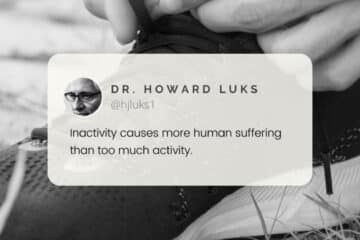
As a runner, it’s essential to take care of your body and avoid habits that can lead to injuries or burnout. Here are four things that runners should avoid in order to stay healthy and keep improving.
- Skipping the warm-up. A proper warm-up before a run is essential for preparing your body for the physical demands of running. It helps to increase your heart rate and blood flow, loosen up your muscles, and improve your range of motion. Without a warm-up, you’re more likely to experience stiffness, soreness, and injuries.
To properly warm up, start by doing some light stretches and dynamic movements, such as walking lunges, leg swings, and arm circles. Then, do some easy jogging or walking to gradually increase your heart rate and blood flow. Finally, do some specific movements that mimic the demands of running, such as high knees, butt kicks, and skipping.
- Ignoring pain. If you experience pain while running, it’s important to listen to your body and take a break. Continuing to run through pain can lead to more serious injuries, such as stress fractures, muscle strains, and tendonitis.
If you feel discomfort while running, try to identify the source of the pain and take steps to address it. For example, if you feel pain in your knee, you may need to adjust your stride or use a different type of running shoe. If you feel pain in your back or hips, you may need to work on your posture or core strength.
Pain in some regions, such as the groin, thigh, shin, and toes, might indicate a stress fracture and should be evaluated.
It’s also important to remember that not all pain is bad. Some amount of discomfort is “normal” when you’re pushing yourself during a run. However, if the pain is severe or persists after you stop running, it’s a sign that something may be wrong, and you should take a break.
- Overdoing it. As a runner, it’s easy to get caught up in the excitement of improving and want to push yourself harder and harder. However, this can lead to burnout and injuries.
To avoid overdoing it, it’s important to gradually increase the distance and intensity of your runs. Start by setting realistic goals and tracking your progress. Then, increase your distance or pace slowly over time, allowing your body to adjust and adapt.
Train like the professionals who perform most of their daily runs in low heart rate zones. For more challenging workouts, you can employ a polarized training schedule.
It’s also important to listen to your body and give yourself rest days when you need them. Your body needs time to recover and rebuild after a run, and taking regular rest days can help prevent burnout and injuries.
- Neglecting strength training. Many runners focus solely on their cardio training and neglect strength training, but this can be a mistake. Incorporating strength training into your routine can improve your running performance and help prevent injuries.
To properly incorporate strength training into your routine, focus on exercises that target the muscles used in running, such as your glutes, quadriceps, hamstrings, and core. This can include squats, lunges, deadlifts, and planks.
Do you have questions regarding an Orthopedic injury or longevity?
Do you want to talk to an expert who can listen to you for 45-60 minutes and explain the options in detail?
Dr. Howard Luks offers remote guidance sessions to review your X-ray or MRI images and explain your options.
Dr. Luks has also received hundreds of requests for educational sessions on the topics discussed in his book, Longevity Simplified.
It’s also important to vary your routine and challenge yourself with different exercises. This can help to prevent boredom and keep your muscles guessing, leading to better results.
In conclusion, there are several things that runners should avoid in order to stay healthy and improve their performance. These include skipping the warm-up, ignoring pain, overdoing it, and neglecting strength training. By following these guidelines, you can keep your body strong and avoid common pitfalls that can hold you back as a runner.











